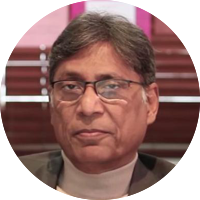Bilqees, the queen of Saba
Bilqees was the Queen of Saba (also known as Sheba). Her kingdom, situated in Yemen, had its heydays during the 8th century BC. While she is not always mentioned by name but scholars point out that she existed during the time of Prophet Suleiman (Solomon). Although Bilqees was known for being a fierce but a just ruler of a kingdom that was the grandest and the wealthiest at that time, some historians dispute her very existence.
The story goes that when prophet Suleiman was surveying his Army once, he noticed that the bird called Hoopoe was missing. He got furious and swore to punish it if it did not return without a just cause. This was precisely when the bird returned with the news that there was a grand kingdom called Saba where the queen and her subjects worshipped Sun as their God. Following this, Suleiman sent an envoy with a message to queen Bilqees asking her to embrace monotheism as her faith along with her people. She did not take his message kindly. However, she met the envoy with courtesy and presented them with generous gifts for Suleiman. Later, Suleiman sent an invitation to her to visit his empire which she gracefully accepted. When she arrived at his palace, she was completely overawed when she saw Suleiman ordering the jinns to fly her throne from Saba to his castle which the jinns did in the blink of an eye. Suleiman also asked her to enter his palace and when she entered she was struck to see a clear and limpid lake spread before her. So, she lifted her skirt to her ankles to step in. Suleiman told her that it was not a lake but a floor made of glass. She was overawed once again. She came to realise at once that Suleiman was no ordinary human and that he was also right in his religious conviction.. Following this, she embraced the faith that prophet Suleiman professed. The queen of Saba is the only female ruler mentioned in the Quran (Sura 27). She is also mentioned variously in the Christian, Coptic, Ethiopian and Jewish narratives.
Reference: Khil uthhe phool mahak mujh ko hawa se aaee/Abr ke roop mein Bilqees Saba se aaee (Khalid Shirazi), Kya bataaun bichhad gaya yaaraan/Ek Bilqees se Saba mera (Jaun Eliya), Na main Bilqees ke ho shahr-e-Saba ki khwahish/Na gham-e-takht-e Sulemani mein baithha hua hoon (Ejaz Gul). Also see: https://www.rekhta.org/nazms/sabaa-viiraan-sulaimaan-sar-ba-zaanuu-aur-sabaa-viiraan-noon-meem-rashid-nazms?lang=ur
Bilqees was the Queen of Saba (also known as Sheba). Her kingdom, situated in Yemen, had its heydays during the 8th century BC. While she is not always mentioned by name but scholars point out that she existed during the time of Prophet Suleiman (Solomon). Although Bilqees was known for being a fierce but a just ruler of a kingdom that was the grandest and the wealthiest at that time, some historians dispute her very existence.
The story goes that when prophet Suleiman was surveying his Army once, he noticed that the bird called Hoopoe was missing. He got furious and swore to punish it if it did not return without a just cause. This was precisely when the bird returned with the news that there was a grand kingdom called Saba where the queen and her subjects worshipped Sun as their God. Following this, Suleiman sent an envoy with a message to queen Bilqees asking her to embrace monotheism as her faith along with her people. She did not take his message kindly. However, she met the envoy with courtesy and presented them with generous gifts for Suleiman. Later, Suleiman sent an invitation to her to visit his empire which she gracefully accepted. When she arrived at his palace, she was completely overawed when she saw Suleiman ordering the jinns to fly her throne from Saba to his castle which the jinns did in the blink of an eye. Suleiman also asked her to enter his palace and when she entered she was struck to see a clear and limpid lake spread before her. So, she lifted her skirt to her ankles to step in. Suleiman told her that it was not a lake but a floor made of glass. She was overawed once again. She came to realise at once that Suleiman was no ordinary human and that he was also right in his religious conviction.. Following this, she embraced the faith that prophet Suleiman professed. The queen of Saba is the only female ruler mentioned in the Quran (Sura 27). She is also mentioned variously in the Christian, Coptic, Ethiopian and Jewish narratives.
Reference: Khil uthhe phool mahak mujh ko hawa se aaee/Abr ke roop mein Bilqees Saba se aaee (Khalid Shirazi), Kya bataaun bichhad gaya yaaraan/Ek Bilqees se Saba mera (Jaun Eliya), Na main Bilqees ke ho shahr-e-Saba ki khwahish/Na gham-e-takht-e Sulemani mein baithha hua hoon (Ejaz Gul). Also see: https://www.rekhta.org/nazms/sabaa-viiraan-sulaimaan-sar-ba-zaanuu-aur-sabaa-viiraan-noon-meem-rashid-nazms?lang=ur
Additional information available
Click on the INTERESTING button to view additional information associated with this sher.
About this sher
rare Unpublished content
This ghazal contains ashaar not published in the public domain. These are marked by a red line on the left.

